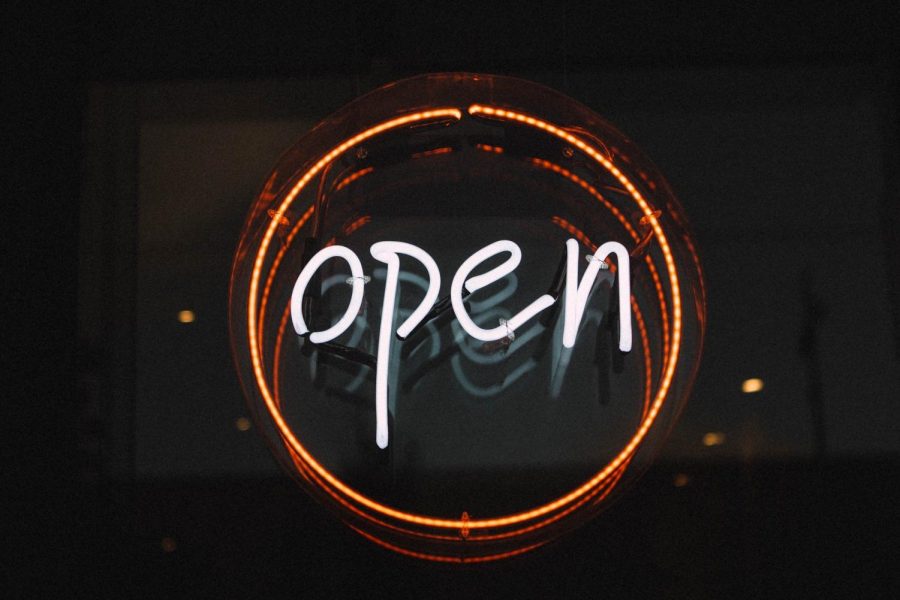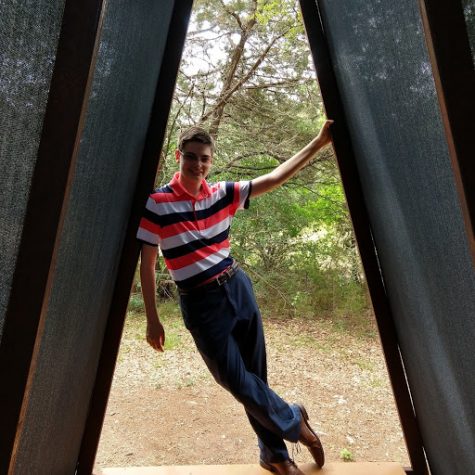Frontline Stories: A Look at High School Workers During the Pandemic
Pexel
As Texas businesses open back up, retail and restaurant workers are on the frontlines. “After a day of interacting with hundreds of different people, I can’t help but worry that just one of them might have made me sick,” Ashtari said. It’s not just Ashtari that’s concerned about safety. Almost every worker we talked to was concerned about their health.
May 15, 2020
Although teenagers aren’t as susceptible to COVID-19, they are being affected by the pandemic in many ways. These effects range from being furloughed, putting themselves in harm’s way at work, or having to take a job to absorb the economic turndown. For Costaki Skevofilax ’20, the pandemic meant taking a job at Amazon.
“At the beginning of COVID, I was not working. I was planning on enjoying my senior summer by not working,” Skevofilax said. “Now I have to go to work to help make ends meet and save for college.”
Almost all of the workers we talked to said that health was a significant concern. Claudia Indriago ’21 said that it’s difficult when people don’t wear masks or bring their entire families into Baskin Robbins, which puts her at risk for infection. This sentiment was also echoed by Gabriel Neumann ’21, who works at P. Terry’s Burger Stand.
“Some people who come through drive-thru don’t wear masks, and that’s stressful, because what if they have the disease and are spreading it to us, even though we’re wearing masks?” Neumann said.
Nima Ashtari ’20 is also worried about his health. He deals with hundreds of customers every day as a cashier for HEB, putting him at risk for exposure to COVID-19.
“Although I am young enough and healthy enough to be able to reasonably deal with the virus, I worry of the possibility of passing it to a family member or a neighbor who might not be as fortunate,” Ashtari said.
Because of these concerns, employers are working to lower the potential risks. At American Eagle, Alondra Garza ’21 says that new procedures have been put in place to minimize spread. These procedures include carefully cleaning all the surfaces in the store and only allowing three employees and 18 customers into the store at a time. Employees also must steam all the clothes that customers try on.
“I’m constantly going back and forth from steaming clothes and opening fitting rooms or even being by the door to keep count of the amount of people coming into the store,” Garza said. “We have to constantly wear masks, constantly wash our hands, and stay 6 feet away, which is extremely difficult for a clothes store.”
HEB has also implemented policies to protect workers and consumers. According to Oriana Yates ’20, plexiglass barriers have been erected at the cash register to minimize contact between people. Employees are required to wear face masks for the duration of their shift. These new safety regulations do come at a cost, though, as was the case for Neumann at P. Terry’s Burger Stand.
“One guy one day yelled at me to take off my mask because he couldn’t hear me well, and when I said I couldn’t do that, he got even angrier. It’s frustrating how rude and incompetent people can be, especially during times like these,” Neumann said.
Frustrations with customers are widespread among retail and restaurant workers. With many people not wearing masks and following social distancing guidelines, workers are concerned about their safety. Some of the employees said people have become ruder and more disrespectful since the start of the pandemic.
“People have gotten a lot ruder, I’ve noticed. The heightened stress of the situation affects people differently, and some of them decide to take it out on fast-food workers who are just trying to do their job,” Neumann said.
Despite their issues with some customers, most of the employees we talked to felt management was doing a good job. Garza said that her leadership fostered a comfortable atmosphere. She also said safety has been the number one priority for American Eagle. Starbucks management has also been helpful to workers during the crisis, according to Victor Brown ’21.
“Management has been incredibly helpful and caring; they have installed all of the safety measures and even given paid leave to anyone who wanted it for a good month, so they have been very helpful,” Brown said.
Indriago has a different view of management. Although Baskin Robbins gave employees the choice of whether to work, she does have concerns. There health and safety rules are continually being changed, which has added to her stress. This uncertainty has only compounded by the fact that shift sizes have decreased, meaning that workers have to shoulder more responsibilities.
“It was definitely much harder to work an entire day with no help. I had to do so many chores myself and also serve customers because we still managed to be busy during this pandemic,” Indriago said.
In the near future, employees’ jobs are unlikely to get any easier. The health risks are also unlikely to decrease as people come out in crowds. Nonetheless, people continue to go to work each day and are unlikely to stop doing so anytime soon.



